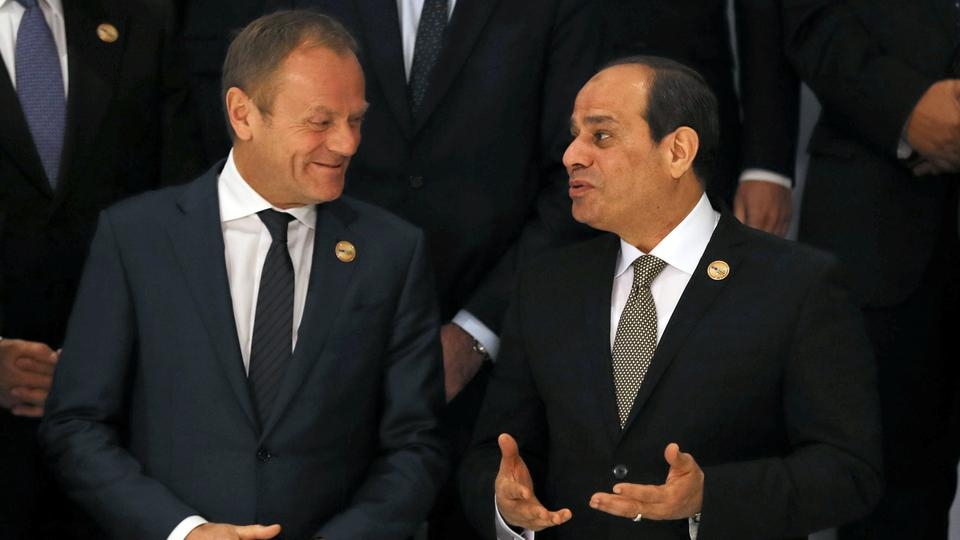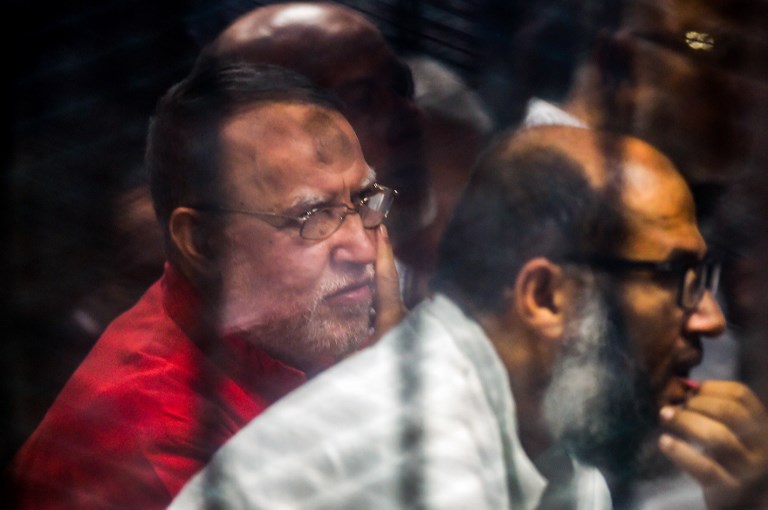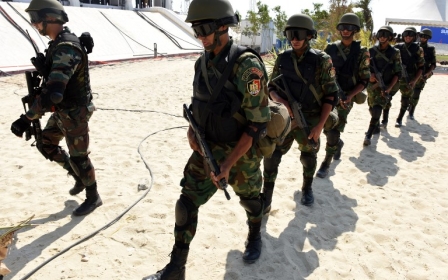EU foreign policy normalises totalitarianism in the Middle East

Last month, President Abdel Fattah al-Sisi made it crystal clear to European leaders, who pride themselves on democracy and the universality of human rights, that his regime rejects these values. His actions underscored this, as Egypt carried out executions after a “grossly unfair” court process and advanced a bill that would amend the constitution to entrench Sisi’s power.
Still, top EU leaders readily accepted Sisi’s hospitality in Sharm el-Sheikh during the EU-League of Arab States summit in late February, reiterating the sheer hypocrisy of EU discourse on the promotion of democracy and human rights.
Bestowing legitimacy upon Sisi’s regime
It is instructive to put this in the context of the 2016 EU Global Strategy, which adopts a “principled”, pragmatist foreign policy to pursue stability in surrounding countries as its central priority. Accordingly, stability in Egypt and its regime is considered a strategic objective for the EU.
This stability-first approach was conspicuous in the agenda of the recent summit, which disposed of human rights and democracy. Neither were featured in the speeches of Donald Tusk, president of the European Council, or Jean-Claude Juncker, president of the European Commission. The summit’s final declaration did not mention the word "democracy" and failed to highlight the universality of human rights, instead focusing on strategic EU concerns, such as multilateral cooperation on trade, migration and security.
Stay informed with MEE's newsletters
Sign up to get the latest alerts, insights and analysis, starting with Turkey Unpacked
It is remarkable how quickly the EU has returned to 'business as usual' with the most repressive regime in Egypt’s modern history
It is remarkable how quickly the EU has returned to “business as usual” with the most repressive regime in Egypt’s modern history. This confirms the failure of the EU to learn from its assessment that authoritarianism is no guarantee of stability.
As Stefan Fule, a former EU commissioner, observed during the initial stages of the 2011 Arab uprisings: “Too many [EU leaders] fell prey to the assumption that authoritarian regimes were a guarantee of stability in the region. This was not even realpolitik. It was, at best, short-termism - and the kind of short-termism that makes the long term ever-more difficult to build.”
His conclusion is as accurate now as it was then. The top-level EU representation at the summit played into Sisi’s hands, bestowing legitimacy upon his totalitarian rule in the international arena and perpetuating the false promise of long-term stability in the Middle East as a way to safeguard Europe’s strategic interests.
Appalling human rights violations
While this stability-first approach may work in the short run, it is ultimately destined to fail, as the situation in Egypt abounds with the necessary factors to trigger protracted instability.
The EU has decided to partner with, and therefore implicitly endorse, Sisi, whose actions include appalling human rights violations, widespread use of torture, forced disappearances, taking political prisoners, massacring hundreds of protesters, and imposing death sentences, to name but a few examples.
During a 60 Minutes interview in January, Sisi described his regime as having taken “some measures to restore security”, a terrifying euphemism that the EU has ignored while continuing on the path of normalisation. The EU has even gone further, presenting the Egyptian regime as a “key partner to promote peace … and stability” and to share its “commitment to the universal values of democracy, the rule of law and the respect for human rights”.
Stability is the key, as evidenced by the frequency with which Sisi and the EU parlay notions of stability and security in their discourses, to different ends: the EU to normalise cooperation with totalitarian regimes across the Middle East, and Sisi to justify his iron-fisted rule.
Sisi deftly invokes the narrative of stability when communicating with Western leaders and audiences, noting that without him, “the situation on the ground could have … caused massive instability”.
Holding the EU accountable
Sisi and his ilk throughout the region are confident that invocations of fundamentalism, Islamism, radicalisation, security, stability, migration and, of course, terrorism, resonate with Western policymakers.
For the EU, “stability” entails keeping security threats and migrants away from Europe. From this perspective, the top-level European representation at the recent EU-Arab summit is part of an ongoing process that normalises authoritarian rule in return for cooperation on economic, security and immigration-related issues, which are central concerns for the EU and its member states.
To be sure, it is not the responsibility of the EU to enforce democracy and respect for human rights in Egypt or elsewhere. This is up to the Egyptian people. But the EU is responsible for its actions, which contribute to the normalisation of totalitarianism.
The vestiges of stability in Egypt derive from repression, and in this regard, the EU’s stability-first approach perpetuates the cycle of oppression. For this, the EU must be held accountable.
The views expressed in this article belong to the author and do not necessarily reflect the editorial policy of Middle East Eye.
Middle East Eye delivers independent and unrivalled coverage and analysis of the Middle East, North Africa and beyond. To learn more about republishing this content and the associated fees, please fill out this form. More about MEE can be found here.







